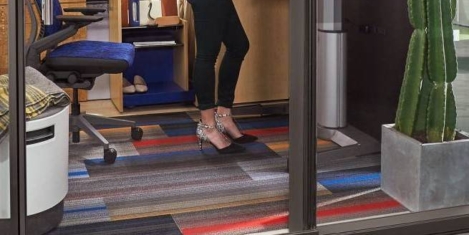September 21, 2017
British organisations must step up to the challenges of artificial intelligence, robotics and automation
 A report published by the RSA think-tank has encouraged UK businesses to embrace artificial intelligence, automation and robotics. arguing that new technology has the potential to raise productivity levels, boost flagging living standards, and phase out ‘dull, dirty and dangerous’ tasks in favour of more purposeful and human-centric work. The Age of Automation report warns, however, that the UK is fast becoming a ‘laggard’ in the adoption of new machines and called on UK business leaders to accelerate their take-up of technology. The RSA found that sales of robots to the UK decreased over 2014-15, with British firms falling behind the US, France, Germany, Spain and Italy. A YouGov poll of UK business leaders, commissioned by the RSA, found that UK business leaders are currently wary of adopting AI and robotics, with just fourteen percent of firms currently investing in this technology or soon planning to. Twenty-nine percent of businesses believe AI & robotics to be too expensive or not yet proven and twenty percent want to invest but believe it will take several years to ‘seriously adopt’ the new technology.
A report published by the RSA think-tank has encouraged UK businesses to embrace artificial intelligence, automation and robotics. arguing that new technology has the potential to raise productivity levels, boost flagging living standards, and phase out ‘dull, dirty and dangerous’ tasks in favour of more purposeful and human-centric work. The Age of Automation report warns, however, that the UK is fast becoming a ‘laggard’ in the adoption of new machines and called on UK business leaders to accelerate their take-up of technology. The RSA found that sales of robots to the UK decreased over 2014-15, with British firms falling behind the US, France, Germany, Spain and Italy. A YouGov poll of UK business leaders, commissioned by the RSA, found that UK business leaders are currently wary of adopting AI and robotics, with just fourteen percent of firms currently investing in this technology or soon planning to. Twenty-nine percent of businesses believe AI & robotics to be too expensive or not yet proven and twenty percent want to invest but believe it will take several years to ‘seriously adopt’ the new technology.















 Emerging technologies such as artificial intelligence, robotics, virtual reality, augmented reality and cloud computing, will transform our lives and how we work over the next decade; and by 2030 every organisation will be a technology organisation. As such businesses need to start thinking today about how to future-proof their infrastructure and workforce, according to a report published by Dell Technologies. The research, led by the Institute for the Future (IFTF) alongside 20 technology, academic and business experts from across the globe also offers insight on how consumers and businesses can prepare for a society in flux. ‘
Emerging technologies such as artificial intelligence, robotics, virtual reality, augmented reality and cloud computing, will transform our lives and how we work over the next decade; and by 2030 every organisation will be a technology organisation. As such businesses need to start thinking today about how to future-proof their infrastructure and workforce, according to a report published by Dell Technologies. The research, led by the Institute for the Future (IFTF) alongside 20 technology, academic and business experts from across the globe also offers insight on how consumers and businesses can prepare for a society in flux. ‘















August 17, 2017
How workplace design shapes and reflects organisational hierarchies
by Angela Love • Comment, Facilities management, Workplace design
(more…)